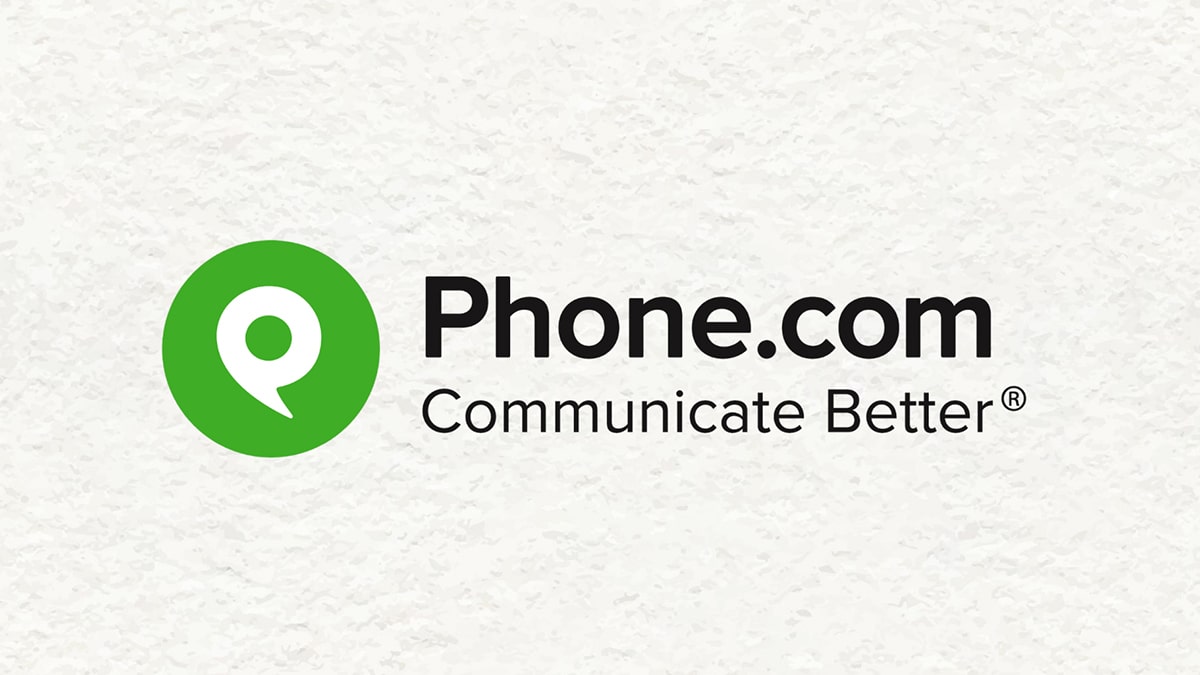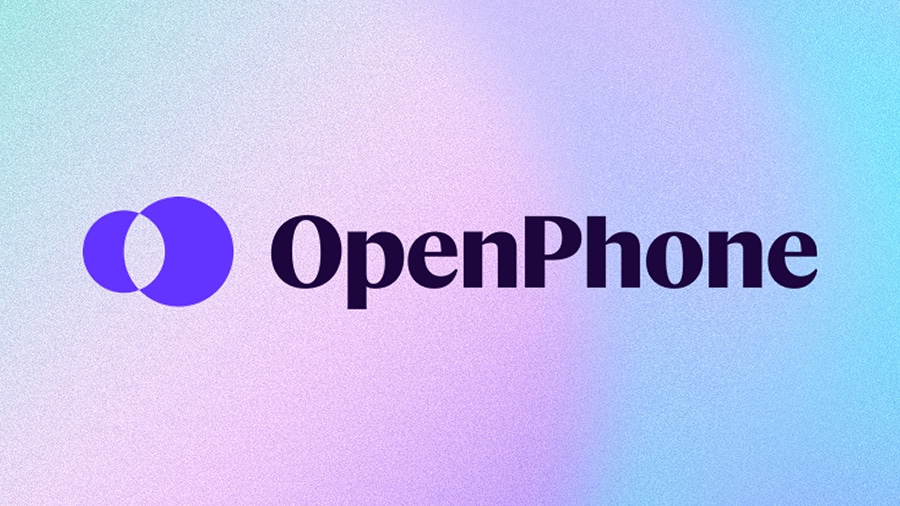Switching to the best VoIP service from a traditional landline can slash your monthly phone bills by up to 50%. VoIP also outperforms landlines, offering superior call quality and advanced call handling features, which can speed up the workflows of your agents while improving the customer experience.
I’ve tested the best VoIP service providers on the market, scoring them on factors like value for money, domestic and international minutes, and support for contemporary features like video conferencing and CRM integrations. Following my in-depth research, I compiled this list of the 10 best VoIP services for businesses.
The Best Business VoIP Phone Services Tested by Our Experts
The 10 Best IP Phone Services for Businesses Ranked
- Ooma — Best low-commitment VoIP service
- RingCentral — Best enterprise VoIP phone system
- MightyCall — Best business VoIP for call centers
- Nextiva — Best VoIP provider for unified communications
- OpenPhone — Best VoIP phone service for sales and recruitment
- Voiply — Best low-cost VoIP service provider
- Phone.com — Best VoIP phone system for small businesses
- Vonage — Best VoIP system for remote workers
- DialPad — Best VoIP service with AI features
- 8×8 — Best VoIP service provider for global teams
- Show Full Guide
The 10 Best VoIP Providers Reviewed
Here, I’ll explore each of the top VoIP tools in more depth to help you choose one that’s best suited to your needs and budget.
1. Ooma — Best Low-Commitment VoIP Service
| Starting Price | $19.95/user/month |
|---|---|
| Free Version | ❌ |
| Key Features | No contracts, Easy installation, Free number porting |
| Toll-Free Numbers | ✅ |
| Customer Support | 24/7 phone support, Help articles |
Pros
- Supports 70+ countries
- AI receptionist with hold music
- Offers call forwarding and call parking
- Monthly rolling contracts
Cons
- Limited features with the basic plan
- More expensive starting plan than most providers
2. RingCentral — Best Enterprise VoIP Phone System
| Starting Price | $30/user/month |
|---|---|
| Free Version | ❌ |
| Key Features | Advanced integrations, Global coverage, Robust security |
| Toll-Free Numbers | ✅ |
| Customer Support | Phone, Chat, FAQs, Online training |
Pros
- Offers 300+ app integrations
- High security
- Good reputation in the VoIP space
- User-friendly mobile and desktop apps
Cons
- High starting price, especially for smaller businesses
- Lots of paid add-ons, like Push to Talk and additional numbers
3. MightyCall — Best Business VoIP for Call Centers
| Starting Price | $15/user/month |
|---|---|
| Free Version | ❌ |
| Key Features | Call queue management, Detailed call analytics, Multi-level IVR |
| Toll-Free Numbers | ✅ |
| Customer Support | Live onboarding, Chat, Email, Phone, Ticket submission, Knowledge base |
Pros
- Excellent call recording features
- Multi-level IVR and music on hold
- An easy-to-use interface
- World-class Amazon Web Services data centers
- Connections are secured with SSL certificates providing 256-bit encryption
Cons
- Doesn’t offer video calling
- Limited third-party integrations
4. Nextiva — Best VoIP Provider for Unified Communications
| Starting Price | $20/user/month |
|---|---|
| Free Version | ❌ |
| Key Features | All-in-one platform, Flexible hardware, CRM integration |
| Toll-Free Numbers | ✅ |
| Customer Support | 24/7 phone, chat, knowledge base, email, ticket submission, webinars |
Pros
- Omnichannel communication solution
- IVR and an auto-attendant
- Integration with popular CRMs
- Conference calling for unlimited users with HD video
- Excellent voicemail transcription feature
Cons
- Digital plan doesn’t include voice calling
- Most integrations locked to highest-tier plan
5. OpenPhone — Best VoIP Phone Service for Sales and Recruitment
| Starting Price | $15/user/month |
|---|---|
| Free Version | ❌ |
| Key Features | Shared numbers, AI transcripts, CRM integration |
| Toll-Free Numbers | ✅ |
| Customer Support | Contact form, Email, Knowledge base |
Pros
- Simple yet intuitive
- Excellent value for money
- Incredible reputation
- Highly customizable
Cons
- Some settings are tricky to find on mobile
- Could use more phone number options
6. Voiply — Best Low-Cost VoIP Service Provider
| Starting Price | $4.96/user/month |
|---|---|
| Free Version | ❌ |
| Key Features | Budget-friendly plans, Unlimited calling, Basic setup |
| Toll-Free Numbers | ✅ |
| Customer Support | 24/7 phone, Email, Ticket submission |
Pros
- 99.99% uptime
- Options to customize
- Free toll-free number
- Most affordable option
- Easy to set up and launch
Cons
- More limited feature set than competitors
- Limited call analytics
7. Phone.com — Best VoIP Phone System for Small Businesses
| Starting Price | $12.74/user/month |
|---|---|
| Free Version | ❌ |
| Key Features | Customizable phone menus, Business phone numbers, Video conferencing |
| Toll-Free Numbers | ✅ |
| Customer Support | 24/7 phone, Chat, Email, Ticket submission, Contact form |
Pros
- Excellent call routing and call handling options
- HIPAA compliant
- Offers call transcription and voice tagging
- Affordable plans
Cons
- Unlimited minutes aren’t included on Basic plan
- Fewer integrations than competitors

8. Vonage — Best VoIP System for Remote Workers
| Starting Price | $13.99/line/month |
|---|---|
| Free Version | ❌ |
| Key Features | Mobile app, Collaboration tools, International numbers |
| Toll-Free Numbers | ✅ for $39.99 per month |
| Customer Support | Phone, Contact form |
Pros
- Gartner-awarded leader status within the CPaaS industry
- A unique adaptive routing feature
- Access to local numbers in 76 countries
- GDPR and HIPPA-compliant
- The premium plan is similarly priced to competitors’ basic plans
Cons
- No video calling on the Mobile plan
- Toll-free numbers cost $39.99 per month
9. DialPad — Best VoIP Service with AI Features
| Starting Price | $15/user/month |
|---|---|
| Free Version | ❌ |
| Key Features | AI transcriptions, Customer sentiment, Integrations |
| Toll-Free Numbers | ✅ |
| Customer Support | 24/7 phone, Chat, Ticket submission |
Pros
- Several CRM integration options
- Impressive AI features
- Easy VoIP number porting
- Great customer support
- Unlimited video meetings
Cons
- Reports aren’t detailed
- No access to 24/7 support on the basic plan
10. 8×8 — Best VoIP Service Provider for Global Teams
| Starting Price | Custom |
|---|---|
| Free Version | ❌ |
| Key Features | nternational calling, Multi-language support, Data compliance |
| Toll-Free Numbers | ✅ |
| Customer Support | 24/7 email and chatbot |
Pros
- Sentiment analysis to detect the customer’s behavior
- Unlimited international calling
- Several integrations including Salesforce, Zendesk, and HubSpot
Cons
- Complex setup
- No transparency with pricing
The 10 Best VoIP Providers Compared
In this table, I’ve compared the 10 best VoIP service providers side-by-side on a number of key factors, including pricing, toll-free numbers, and the modes of customer support available.
| Providers | Ooma | RingCentral | MightyCall | Nextiva | OpenPhone | Voiply | Phone.com | Vonage | DialPad | 8×8 |
|---|---|---|---|---|---|---|---|---|---|---|
| Best for | No contract | Enterprises | Call centers | Unified communications | Sales and recruitment | Low cost | Small businesses | Remote working | AI features | International calling |
| Free Version | ❌ | ❌ | ❌ | ❌ | ❌ | ❌ | ❌ | ❌ | ❌ | ❌ |
| Starting Price | $19.95/user/month | $30/user/month | $15/user/month | $20/user/month | $15/user/month | $4.96/user/month | $12.74/user/month | $13.99/line/month | $15/user/month | Custom |
| Toll-Free Numbers | ✅ | ✅ | ✅ | ✅ | ✅ | ✅ | ✅ | ✅ for $39.99 per month | ✅ | ✅ |
| Customer Support | 24/7 phone support, help articles | Phone, chat, FAQs, online training | Live onboarding, chat, email, phone, ticket submission, knowledge base | 24/7 phone, chat, knowledge base, email, ticket submission, webinars | Contact form, email, knowledge base | 24/7 phone, email, ticket submission | 24/7 phone, chat, email, ticket submission, contact form | Phone, contact form | 24/7 phone, live chat, help center | 24/7 phone, chat, ticket submission |
| Voicemail Transcription | ✅ | ✅ | ✅ | ✅ | ✅ | ✅ | ✅ | ✅ | ✅ | ✅ |
| Mobile Application | ✅ | ✅ | ✅ | ✅ | ✅ | ✅ | ✅ | ✅ | ✅ | ✅ |
How We Review And Test VoIP Services
We base our recommendations on first-hand testing. All the VoIP products we feature, have been tested based on the following criteria:
- Features: We explore the platform’s general call and video conferencing capabilities and unique features like automation, call queuing, call recording, and IVR features.
- Integrations: We assess whether it offers integration support for popular business apps such as CRMs, project management platforms, helpdesk software, and others.
- Reliability: We test the call quality on offer with the VoIP platform, and we only include services that offer an uptime guarantee of close to 100%.
- Security and Compliance: We check whether the platform offers industry-standard encryption, access controls, compliance with regulations like GDPR, and firewalls.
- Numbers: We factor in whether the platform offers a variety of number options like local, toll-free, international, and vanity numbers.
- Ease of Use: We test the VoIP service on its available platforms to ensure we can give accurate insight into its usability.
- Value for Money: After our hands-on testing, we’re able to better analyze whether the price point is fair to offer insight into the feature-to-price value on offer.
- Reviews and Reputation: Beyond our hands-on testing, we explore third-party reviews to see if we need to investigate certain aspects of the VoIP service further. This combined allows us to offer a good overview of what our readers can expect from the platform.
What is VoIP?
Voice over Internet Protocol (VoIP) is a way to make phone calls using the Internet instead of traditional phone lines.
Instead of connecting through physical wiring, as with PSTN or POTS, your voice is turned into digital data that travels over the internet. This lets you make calls from any compatible device, including computers, smartphones, or special VoIP phones, often at a lower cost, with better call quality and advanced call handling features.
Types of Internet Phone Services
Within the larger umbrella of Internet phone services, there are different types available. Here are some of the core variations:
UCaaS
A Unified Communications as a Service (UCaaS) VoIP service offers greater versatility when it comes to communication. Beyond placing calls over the Internet, UCaaS supports text messaging, video conferencing and meetings, document sharing, social media integration, and voicemail transcription.
UCaaS is designed to bring together various modes of communication to promote a streamlined and centralized way of collaborating. Recognizing the importance of flexibility, cloud-based UCaaS can also be accessed from anywhere in the world and on any device with an internet connection.
Hosted VoIP
Hosted VoIP is a service in which a separate provider hosts and manages the VoIP system in the cloud. You access the service via the Internet and usually pay a monthly subscription fee. Instead of installing phone equipment in your office, all you need is an internet connection.
The provider takes care of the technical setup and maintenance. With hosted VoIP, you can make and receive calls through your computer, smartphone, or VoIP phone. These systems are popular among businesses because they require minimal upfront investment and offer great scalability and flexibility.
CPaaS
Communications Platform as a Service (CPaaS) allows businesses to easily incorporate communication features such as voice calls, text messaging, and video calls into their applications without having to develop these features from the ground up.
These services provide flexibility, scalability, and customization options, making them suitable for a wide variety of applications, including customer service chatbots.
Buying Guide: How to Choose the Best VoIP Phone Service
VoIP Cost
Below are the costs associated with setting up and maintaining your VoIP system. There are upfront costs to consider as well as some that may be unforeseen.
- Installation — If you use your existing devices, installation costs are non-existent, as no additional hardware is necessary. However, you can choose to purchase new IP phones, which cost around $20-$50 each and would then incur set-up costs.
- Type of Service — Your ongoing costs will depend on the complexity of the VoIP service you choose, whether it’s a simple voice calling system or one that supports advanced features such as analytics, high security, and third-party integrations.
- Cost Per User — Most VoIP systems are priced per user, so the overall cost will increase depending on your team size.
- Additional Fees — Your VoIP plan may include additional charges for international calling, add-on features, and extra phone numbers.
VoIP Features
Wondering what additional features you can enjoy with a VoIP system? Here, I’ll run through the main features you can look forward to beyond voice calling.
- SMS/MMS — Send and receive text (SMS) or multimedia messages (MMS) through your phone system.
- Automated Attendant — A virtual receptionist directs calls to the right department or extension automatically, without a live agent having to answer the call.
- Video Conferencing — Host live video meetings with multiple participants over a secure internet connection.
- Call Analytics — Provides data on call frequency, durations, and performance for better decision-making.
- Call Queue — Places callers on hold in a waiting line when agents are busy, distributing calls in order, which is vital for call centers.
- Ring Groups — Simultaneously rings multiple phones or extensions so that any available agent can answer.
- Toll-Free Number — A number that allows customers to call your business for free, typically starting with 800.
- Call Monitoring — Lets supervisors listen in on live calls for training or quality assurance.
- Call Recording — Records calls for future playback, training, or compliance purposes.
- Call Forwarding — Automatically sends incoming calls to another number or device.
- Integrations — Connects your phone system with other software (e.g., CRM or helpdesk tools) to streamline processes.
Customer support
Most VoIP services promise 99.99% uptime, ensuring reliable connection, but technical issues can still occur and disrupt business operations. Therefore, reliable customer support is essential.
Different VoIP providers offer various customer support options, such as self-service knowledge bases, forums, chatbots, and round-the-clock phone support.
Your preferred type of support should be based on your business size and needs. For example, startups might require immediate hands-on support for troubleshooting initial setup, while larger businesses or call centers may need a dedicated account manager for continuous 24/7 support.
Security
Since VoIP is operated in the cloud and not on-premises, there are understandable concerns about its security. Operating over the internet can leave VoIP systems vulnerable to eavesdropping and hacking without proper security measures in place.
A VoIP provider with robust security features ensures that calls are protected from cyber-attacks and customer data isn’t compromised.
When analyzing the right VoIP provider for you, look out for security standards such as:
- Firewalls — Network firewalls defend against unauthorized access and prevent malicious traffic from entering the system.
- Multi-Factor Authentication (MFA) — Adds an extra layer of protection by requiring more than just a password for system access.
- End-to-End Encryption — Ensures that only the sender and receiver can access the content of communications, preventing interception.
- Compliance Certifications — Look for compliance with standards like GDPR, HIPAA, and PCI-DSS, which show that the provider meets stringent data protection regulations.
- Data Location — Depending on where you are located, you may want to look for a VoIP system that stores its data in the US/EU, as this implies which data protection regulations it is in line with.
When shopping for your VoIP system, look out for detailed descriptions of security features, security audits, and proactive 24/7 monitoring and support.
What Is a Softphone?
VoIP can be used on your existing devices because it uses software-based phones called softphones. Softphones allow you to make and receive calls on your smartphone, desktop, or tablet as long as you have an internet connection. They mimic the experience of using a traditional desk phone, without the financial investment.
Adding new users is also much cheaper than with traditional equipment; you simply have to update the plan rather than adding extra lines. This makes it easy for the phone system to grow along with you.
Using softphones frees you from having to work from a desk, as you can use your business phone line from a portable device. This better suits hybrid and remote working models, allowing employees to work from anywhere.
Softphones offer advanced features such as call forwarding, video conferencing, voicemail, SMS/MMS, call recording, and integrations with CRM software, enhancing team productivity and the customer experience. Many softphones also support UCaaS features, allowing businesses to integrate voice, video, chat, and collaboration tools into one platform.
The Difference Between VoIP and Landline
VoIP vs. landline, what’s the difference? Landlines are fixed phone lines that run independently of the internet, and although this has its advantages, VoIP solutions are quickly making landline connections obsolete.
While some landlines can have features like caller ID and call forwarding, VoIP services provide these and more.
VoIP’s advanced features include reporting, IVR options and call queue management. VoIP systems also let you streamline your communications by integrating with social media, video calling, and live chat.
Beyond features, a traditional landline offers little flexibility, whereas a cloud phone system like those reviewed here can be used on mobile or desktop devices with an internet connection.
VoIP is also easily scalable, as you don’t have to worry about installing new lines when your business grows (or the hefty initial and ongoing investments) — simply upgrade your subscription.
The Benefits of VoIP
The benefits of adopting a VoIP system are numerous. In this section, I’ll highlight some of the key benefits.
- Save on call costs and landline bills — VoIP routes calls over the internet, often reducing call rates compared to traditional phone systems. This helps to significantly reduce your phone bill, especially for frequent or international communication.
- Easy setup — VoIP systems are simple to install, requiring minimal hardware. Most setups involve connecting existing devices (computers, smartphones) to a network and installing software, which makes them hassle-free and faster than traditional phone installations.
- Increased call quality — VoIP technology ensures crisp, clear audio. With a stable internet connection, you can experience better call quality than typical landline systems, minimizing misunderstandings and strengthening customer relationships.
- Allows for flexibility — VoIP works from anywhere with an internet connection, allowing you to make and receive calls on mobile devices, laptops, or desktops. This flexibility is ideal for remote workers or businesses with multiple international locations.
- Access to advanced features — VoIP offers features like call forwarding, voicemail-to-email, video conferencing, auto attendants, and integrations with CRMs. These tools boost productivity, streamline communication, and enhance customer service.
The Drawbacks of VoIP
While VoIP is an impressive technology, it’s not perfect. Here are some of the main drawbacks of a VoIP phone system.
- Reliance on an Internet connection — Relying on the Internet can lead to dropped calls, poor audio quality, and interruptions. This can mean that VoIP is less reliable for those without access to a stable internet connection.
- Security — Without the proper security measures in place, VoIP systems are vulnerable to cyber threats such as hacking, eavesdropping, and phishing. Robust security measures like encryption and secure authentication can reduce these risks and protect your data.
- Regulatory Concerns — Since VoIP services operate in the cloud and are not geographically oriented in any singular region, this can lead to regulatory concerns relating to access to emergency services, number portability, and data privacy. To prevent legal issues, you should choose a phone system that complies with local and national regulations.
Preparing for Landline Service Sunset
In August 2022, the Federal Communications Commission’s order 19-72 passed, allowing telecom companies to stop providing traditional landline services across the country — as long as they offered another option. VoIP is the welcome alternative.
Switching to a VoIP system now will allow your business to get ahead of any mass migration issues and future-proof your services— or, if you’re just getting started, you can avoid this headache entirely.
As VoIP statistics show, VoIP solutions are the modern communication standard, and they can provide an enduring, scalable platform to serve all your organizational needs.











